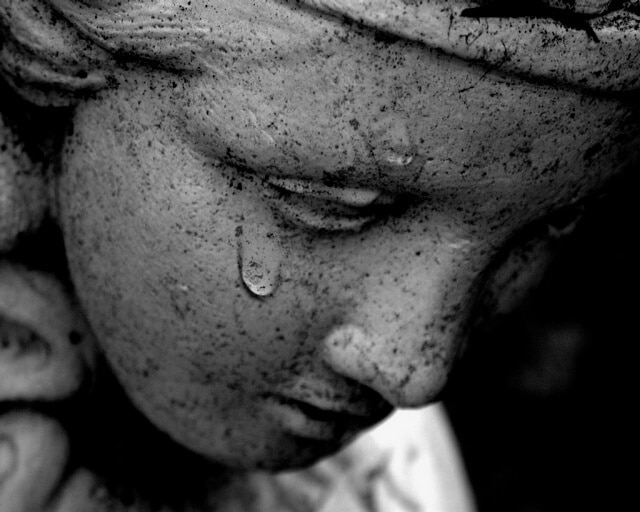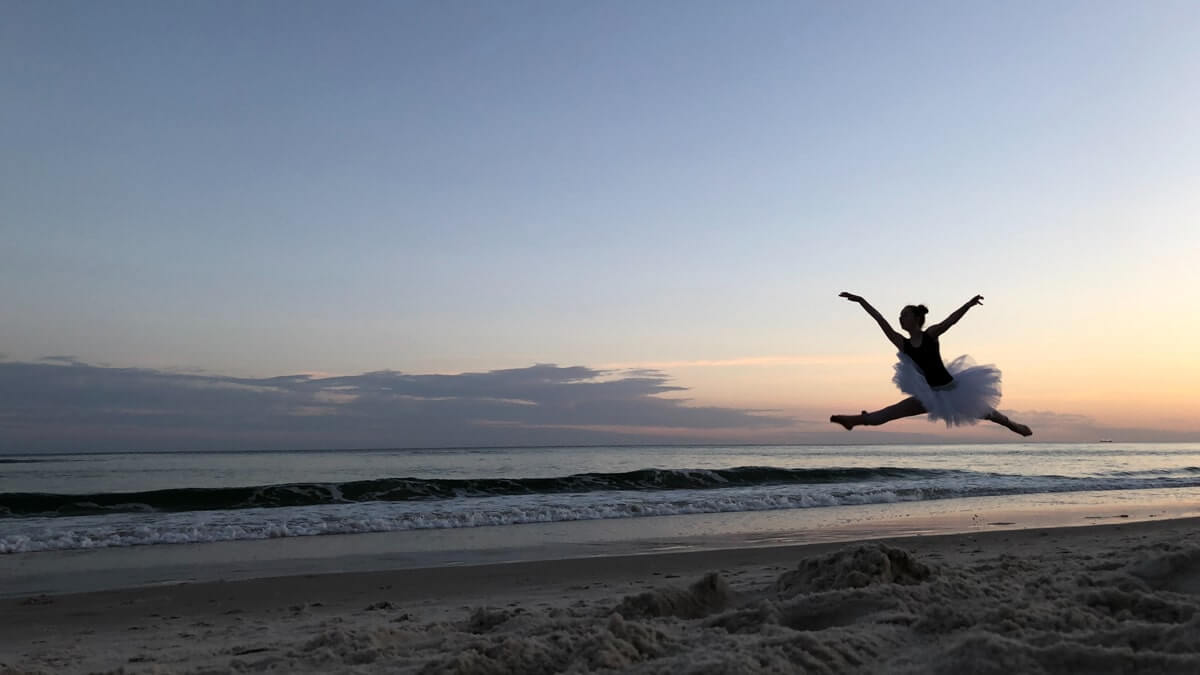An Invitation

Happiness is the ultimate goal of virtually all the decisions we make in life. So why aren’t we all happy all the time?
Although the answer is simple, it isn’t necessarily easy. If you want to change your life, first you must change your “reality”. Do you live in a reality where anything seems possible, despite difficulties, or in the opposite mindset, that very little seems possible? The lens through which you see the world defines the possibilities you believe in. What you choose to focus on shapes how you perceive and interpret your world. There are objective facts that can impact our lens too – illness, loss or financial constraints for example, but if you see even these as challenges, not impediments, then the possibility is they can be overcome. According to Harvard trained researcher Shawn Achor, before we can be happy or successful, we need to first develop the ability to believe that positive change is possible.
How can you change what you focus on so that you develop a reality that leans toward positivity, engagement and happiness?
According to the work of Martin Seligman Ph.D., the founder of Positive Psychology, the happiest people are those who have discovered their unique strengths and values and use those strengths and values for a purpose that is greater than their own personal goals.
Sadly, most of us have a difficult time knowing what our unique strengths or values are and how to engage them in ways that are purpose driven and enhance our belief in ourselves. It isn’t the lens we have been taught to look through. Even when we know, taking steps outside of our comfort zone can feel uncomfortable because most people are uncomfortable with change.
We often feel isolated from each other by the very feelings we have in common as human beings: including fear of change, fear of failure, rejection, disappointment, shame and a belief that we are not enough. In this isolation, we lose hope and continue to distance ourselves from the experiences that bring purpose and meaning to our lives. We lose connection with our own inner being, our creativity, flow, and intuition.
In a culture that is rampant with perfectionism and pleasing, and the constant pressure to conform and pretend to be who we are not, it feels easier sometimes to stay quiet, fit in and step back into the shadows. What if we embarrass ourselves? What if we lose money? What if we make the wrong choice? What if we open our hearts and are rejected? When we think about taking a risk our innate fight/flight response kicks in and demands that we stop. Yet we know that some of life’s most rewarding experiences come as a result of taking risks and going outside of our comfort zone.
When we examine our lives, isn’t it true that nothing is as painful as standing on the outside of our lives looking in, and wondering what might have been, had we found the courage to feel afraid and dare to take a risk anyway?

I dare you to take a risk now and choose to focus on the possibility that you have ‘work that has been put into heart”. Dare to be brave and believe that positive change is possible and that you can change the world you believe in.
Dare to lean into your life. To ask the question “how good can I stand it?”
Dare to believe in your skills and abilities, in your capacity for positive change, in your talents, strengths, and your creativity.
Dare to be tenacious, to not give up, to whether any obstacles and get back up after each time you fall (you will fall).
Dare to acknowledge and embrace your imperfections, they are opportunities for self-improvement. Prioritize learning over approval and value the learning process. Be a student.
Dare to cultivate a sense of purpose, awe, and wonderment, passion, and possibility. Dare to make love your religion.
Dare to trust your own wisdom. Cultivate your grit, determination, and perseverance. Be your own hero.
Dare to be kind to yourself, patient and understanding. Use the phrase “not yet” instead of “I can’t”. Like this: “I haven’t succeeded … yet!”
Dare to take ownership of your own attitude. Eradicate excuses, they are a weight that slows you down. Be in your integrity. Be authentic.
Dare to ask others for help. Seek mentorship. Find alliances. Trust you are worthy of support.
Dare to renovate your comfort zone. Be willing to take risks. Be bold. Be courageous.
Dare to consider the landscape of your life with compassion. Be present instead of perfect. Be true to yourself.
Dare to be inspiring. Be inspired by others. Make a statement. Declare yourself. Take a stand.
Dare to take ownership of your own life. You are the author of the story of your life. Keep writing until it is the story you want to live.
Dare to be a poet. A writer. A visionary. A healer. An artist. A helper. A collaborator. A connector. A guide.
Dare to be an activator. A catalyst. An accelerator. An innovator. An influencer. A beast. A creator. A powerhouse. A formidable force.

Seligman’s broad vision of well-being consists of five elements: positive emotion, engagement, positive relationships, meaning, and achievement. Attending to these five core elements of happiness and well-being will help you identify areas to become daring in:
Positive Emotion – meaning enjoying what you do and having a hopeful attitude about the future
Engagement – meaning feeling engrossed in and deeply absorbed by an experience
Positive Relationships – As human beings, we are wired to belong, connect, interact. It is in our connected relationships that we thrive.
Meaning – Finding meaning in life is what makes a person want to live. Meaning isn’t found in what we get, but in who we are.
Accomplishments – when we take pride in our accomplishments our self-esteem, our sense of worth and our confidence grows.
Happiness is an extension of well-being and is formed through our life experiences. It is an experience created through our process of living; it is not a destination. In order to release the fear that binds us, we must be larger than our anxiety and fear, braver than our shame and uncertainty. The Dalai Lama once said, “Happiness is not something ready-made. It comes from your own actions.” Happiness is active, it is lived. We must speak up and show up. Action is required. Movement is essential. Steps are necessary.
Are you willing to take steps toward your own freedom and happiness? Are you willing to be brave and find a way to cultivate, express and share your unique gifts and allow those gifts to be used as the Universe intends?
Dare.
– Theodore Roosevelt
Dare Posts
An Invitation

Happiness is the ultimate goal of virtually all the decisions we make in life. So why aren’t we all happy all the time?
Although the answer is simple, it isn’t necessarily easy. If you want to change your life, first you must change your “reality”. Do you live in a reality where anything seems possible, despite difficulties, or in the opposite mindset, that very little seems possible? The lens through which you see the world defines the possibilities you believe in. What you choose to focus on shapes how you perceive and interpret your world. There are objective facts that can impact our lens too – illness, loss or financial constraints for example, but if you see even these as challenges, not impediments, then the possibility is they can be overcome. According to Harvard trained researcher Shawn Achor, before we can be happy or successful, we need to first develop the ability to believe that positive change is possible.
How can you change what you focus on so that you develop a reality that leans toward positivity, engagement and happiness?
According to the work of Martin Seligman Ph.D., the founder of Positive Psychology, the happiest people are those who have discovered their unique strengths and values and use those strengths and values for a purpose that is greater than their own personal goals.
Sadly, most of us have a difficult time knowing what our unique strengths or values are and how to engage them in ways that are purpose driven and enhance our belief in ourselves. It isn’t the lens we have been taught to look through. Even when we know, taking steps outside of our comfort zone can feel uncomfortable because most people are uncomfortable with change.
We often feel isolated from each other by the very feelings we have in common as human beings: including fear of change, fear of failure, rejection, disappointment, shame and a belief that we are not enough. In this isolation, we lose hope and continue to distance ourselves from the experiences that bring purpose and meaning to our lives. We lose connection with our own inner being, our creativity, flow, and intuition.
In a culture that is rampant with perfectionism and pleasing, and the constant pressure to conform and pretend to be who we are not, it feels easier sometimes to stay quiet, fit in and step back into the shadows. What if we embarrass ourselves? What if we lose money? What if we make the wrong choice? What if we open our hearts and are rejected? When we think about taking a risk our innate fight/flight response kicks in and demands that we stop. Yet we know that some of life’s most rewarding experiences come as a result of taking risks and going outside of our comfort zone.
When we examine our lives, isn’t it true that nothing is as painful as standing on the outside of our lives looking in, and wondering what might have been, had we found the courage to feel afraid and dare to take a risk anyway?

I dare you to take a risk now and choose to focus on the possibility that you have ‘work that has been put into heart”. Dare to be brave and believe that positive change is possible and that you can change the world you believe in.
Dare to lean into your life. To ask the question “how good can I stand it?”
Dare to believe in your skills and abilities, in your capacity for positive change, in your talents, strengths, and your creativity.
Dare to be tenacious, to not give up, to whether any obstacles and get back up after each time you fall (you will fall).
Dare to acknowledge and embrace your imperfections, they are opportunities for self-improvement. Prioritize learning over approval and value the learning process. Be a student.
Dare to cultivate a sense of purpose, awe, and wonderment, passion, and possibility. Dare to make love your religion.
Dare to trust your own wisdom. Cultivate your grit, determination, and perseverance. Be your own hero.
Dare to be kind to yourself, patient and understanding. Use the phrase “not yet” instead of “I can’t”. Like this: “I haven’t succeeded … yet!”
Dare to take ownership of your own attitude. Eradicate excuses, they are a weight that slows you down. Be in your integrity. Be authentic.
Dare to ask others for help. Seek mentorship. Find alliances. Trust you are worthy of support.
Dare to renovate your comfort zone. Be willing to take risks. Be bold. Be courageous.
Dare to consider the landscape of your life with compassion. Be present instead of perfect. Be true to yourself.
Dare to be inspiring. Be inspired by others. Make a statement. Declare yourself. Take a stand.
Dare to take ownership of your own life. You are the author of the story of your life. Keep writing until it is the story you want to live.
Dare to be a poet. A writer. A visionary. A healer. An artist. A helper. A collaborator. A connector. A guide.
Dare to be an activator. A catalyst. An accelerator. An innovator. An influencer. A beast. A creator. A powerhouse. A formidable force.

Seligman’s broad vision of well-being consists of five elements: positive emotion, engagement, positive relationships, meaning, and achievement. Attending to these five core elements of happiness and well-being will help you identify areas to become daring in:
Positive Emotion – meaning enjoying what you do and having a hopeful attitude about the future
Engagement – meaning feeling engrossed in and deeply absorbed by an experience
Positive Relationships – As human beings, we are wired to belong, connect, interact. It is in our connected relationships that we thrive.
Meaning – Finding meaning in life is what makes a person want to live. Meaning isn’t found in what we get, but in who we are.
Accomplishments – when we take pride in our accomplishments our self-esteem, our sense of worth and our confidence grows.
Happiness is an extension of well-being and is formed through our life experiences. It is an experience created through our process of living; it is not a destination. In order to release the fear that binds us, we must be larger than our anxiety and fear, braver than our shame and uncertainty. The Dalai Lama once said, “Happiness is not something ready-made. It comes from your own actions.” Happiness is active, it is lived. We must speak up and show up. Action is required. Movement is essential. Steps are necessary.
Are you willing to take steps toward your own freedom and happiness? Are you willing to be brave and find a way to cultivate, express and share your unique gifts and allow those gifts to be used as the Universe intends?
Dare.
– Theodore Roosevelt
Dare Posts
R.A.I.N.

I have now taught RAIN to thousands of students, clients, and mental health professionals, adapting and expanding it into the version you’ll find in this chapter. I’ve also made it a core practice in my own life. Here are the four steps of RAIN presented in the way I’ve found most helpful:
- R – Recognize what is happening
- A – Allow life to be just as it is
- I – Investigate inner experience with kindness
- N – Non-Identification.
RAIN directly de-conditions the habitual ways in which you resist your moment-to-moment experience. It doesn’t matter whether you resist “what is” by lashing out in anger, by having a cigarette, or by getting immersed in obsessive thinking. Your attempt to control the life within and around you actually cuts you off from your own heart and from this living world. RAIN begins to undo these unconscious patterns as soon as we take the first step.
Recognize what is happening:
Recognition is seeing what is true in your inner life. It starts the minute you focus your attention on whatever thoughts, emotions, feelings or sensations are arising right here and now. As your attention settles and opens, you will discover that some parts of your experience are easier to connect with than others. For example, you might recognize anxiety right away, but if you focus on your worried thoughts, you might not notice the actual sensations of squeezing, pressure or tightness arising in the body. On the other hand, if your body is gripped by jittery nervousness, you might not recognize that this physical response is being triggered by your underlying belief that you are about to fail. You can awaken recognition simply by asking yourself: “What is happening inside me right now?” Call on your natural curiosity as you focus inward. Try to let go of any preconceived ideas and instead listen in a kind, receptive way to your body and heart.
Allow life to be just as it is:
Allowing means “letting be” the thoughts, emotions, feelings or sensations you discover. You may feel a natural sense of aversion, of wishing that unpleasant feelings would go away, but as you become more willing to be present with “what is,” a different quality of attention will emerge. Allowing is intrinsic to healing, and realizing this can give rise to a conscious intention to “let be.”
Many students I work with support their resolve to “let be” by mentally whispering an encouraging word or phrase. For instance, you might feel the grip of fear and whisper “yes” or experience the swelling of deep grief and whisper “yes.” You might use the words “this too” or “I consent.” At first you might feel you’re just “putting up” with unpleasant emotions or sensations. Or you might say “yes” to shame and hope that it will magically disappear. In reality, we have to consent again and again. Yet even the first gesture of allowing, simply whispering a phrase like “yes” or “I consent” begins to soften the harsh edges of your pain. Your entire being is not so rallied in resistance. Offer the phrase gently and patiently, and in time your defenses will relax, and you may feel a physical sense of yielding or opening to waves of experience.
Investigate with Kindness:
At times, simply working through the first two steps of RAIN is enough to provide relief and reconnect you with presence. In other cases, however, the simple intention to recognize and allow is not enough. For instance, if you are in the thick of a divorce, about to lose a job or dealing with a life threatening illness, you may be easily overwhelmed by intense feelings. Because these feelings are triggered over and over again—you get a phone call from your soon-to-be ex, your bank statement comes, you wake up to pain in the morning—your reactions can become very entrenched. In such situations, you may need to further awaken and strengthen mindful awareness with the I of RAIN.
Investigation means calling on your natural interest—the desire to know truth—and directing a more focused attention to your present experience. Simply pausing to ask, “What is happening inside me?” might initiate recognition, but with investigation you engage in a more active and pointed kind of inquiry. You might ask yourself: “What most wants attention?” “How am I experiencing this in my body?” or “What am I believing?” or “What does this feeling want from me?” You might contact sensations of hollowness or shakiness, and then find a sense of unworthiness and shame buried in these feelings. Unless they are brought into consciousness, these beliefs and emotions will control your experience and perpetuate your identification with a limited, deficient self.
When I first shared the RAIN acronym with students, many of them had problems with the investigation step. Some said things like, “When fear arises, my investigation just takes me into thinking about what is causing it and how to feel better.” Others reported, “I can’t stay in my body long enough to investigate where an emotion lives in me.” For many, investigation triggered judgment: “I know I’m supposed to be investigating this shame, but I hate it…and I hate myself for having it.”
All these responses reflect our natural resistance to feeling uncomfortable and unsafe: thoughts swarm in our head, we leave our body, we judge what is happening. What my students were telling me was that RAIN was missing a key ingredient. In order for investigation to be healing and freeing, we need to approach our experience with an intimate quality of attention. We need to offer a gentle welcome to whatever surfaces. This is why I use the phrase “Investigate with kindness.” Without this heart energy, investigation cannot penetrate; there is not enough safety and openness for real contact.
Imagine that your child comes home in tears after being bullied at school. In order to find out what happened and how your child is feeling, you have to offer a kind, receptive, gentle attention. Bringing that same kindness to your inner life makes inquiry, and ultimately healing, possible.
Non-identification; Rest in Natural Awareness:
The lucid, open and kind presence evoked in the R, A and I of RAIN leads to the N: the freedom of Non-identification, and the realization of what I call Natural awareness or natural presence. Non-identification means that your sense of who you are is not fused with or defined by any limited set of emotions, sensations or stories. When identification with the small self is loosened, we begin to intuit and live from the openness and love that express our natural awareness. The first three steps of RAIN require some intentional activity. In contrast, the N of RAIN expresses the result: a liberating realization of your natural awareness. There’s nothing to do for this last part of RAIN—realization arises spontaneously, on its own. We simply rest in natural awareness.
Adapted from Tara’s book, True Refuge: Finding Peace & Freedom in Your Own Awakened Heart (Bantam, 2013).






